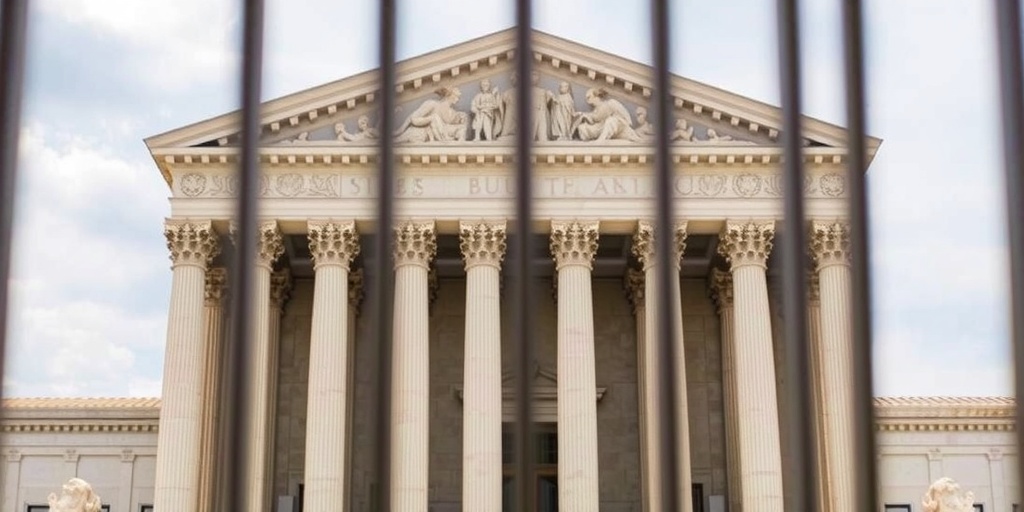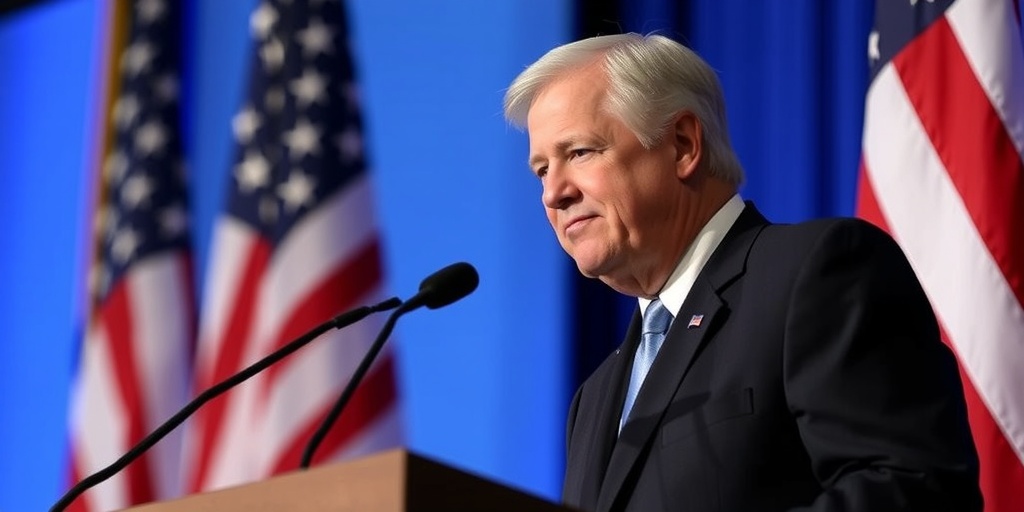Now Reading: Supreme Court Orders New Trial for Oklahoma Death Row Inmate
-
01
Supreme Court Orders New Trial for Oklahoma Death Row Inmate
Supreme Court Orders New Trial for Oklahoma Death Row Inmate

Supreme Court Orders New Trial for Richard Glossip, Death Row Inmate in Oklahoma
On Tuesday, a landmark decision was made by the U.S. Supreme Court as it granted a new trial for Richard Glossip, a death row inmate in Oklahoma, based on significant flaws in his original conviction. This ruling represents a pivotal moment in a legal battle that has persisted for over two decades, drawing widespread attention from both legal experts and public figures alike.
Glossip was convicted in 2004 for allegedly orchestrating the murder of Barry Van Treese, the owner of a motel in Oklahoma City. His conviction relied heavily on the testimony of a key witness, Justin Sneed, a handyman who had initially pleaded guilty to the murder and received a life sentence in exchange for his testimony against Glossip. During the trial, Sneed claimed that Glossip had instructed him to carry out the killing. However, as investigations progressed, numerous concerns emerged regarding the integrity of Sneed’s testimony and the evidence presented in court.
Attorney General Gentner Drummond, a Republican from Oklahoma, played an instrumental role in challenging Glossip’s conviction. In an unprecedented move, Drummond requested the Supreme Court to vacate Glossip’s conviction, aligning with calls for justice from lawmakers across the political spectrum, as well as high-profile supporters like reality TV star Kim Kardashian. The case garnered a substantial amount of media attention and public scrutiny, with many advocating for clemency or a retrial based on the growing evidence of Glossip’s possible innocence.
Justice Sonia Sotomayor, who authored the majority opinion, outlined several critical missteps in the original trial. It was established that prosecutors had failed to correct false testimony provided by the star witness, thus violating Glossip’s due process rights. "Glossip is entitled to a new trial," Sotomayor stated firmly, emphasizing the importance of upholding the integrity of the judicial process.
Dissenting opinions were offered by Justices Clarence Thomas, Samuel A. Alito Jr., and Amy Coney Barrett, while Justice Neil M. Gorsuch recused himself from participating in the case due to having previously handled it as an appeals court judge. The split among the justices underscores the contentious nature of legal interpretations surrounding Glossip’s case and the broader implications for the death penalty in the United States.
The crux of Glossip’s initial conviction rested on Sneed’s allegation that Glossip had masterminded the murder. However, subsequent independent investigations raised serious doubts about Glossip’s culpability, revealing that critical evidence had been withheld and that key witness testimonies were flawed. Notably, Sneed’s claims about his mental health were called into question when recently surfaced notes suggested he had been diagnosed with bipolar disorder, contradicting his earlier statements during the trial.
In his testimony, Sneed recounted an episode from his arrest when he requested Sudafed for a cold, only to later receive lithium, a medication used for treating bipolar disorder. When pressed by prosecutor Connie Smothermon about the circumstances leading to his lithium prescription, Sneed seemed confused and unaware of why he was being treated with the drug, raising further doubts about his reliability as a witness.
Legal representatives for both Glossip and the state asserted that Sneed had provided misleading information regarding his psychiatric treatment, and that the prosecution failed to correct his inaccuracies during the trial. Newly disclosed documentation indicated that prosecutors were aware of Sneed’s mental health issues, yet did not disclose this potentially exculpatory evidence, raising violations under established Supreme Court precedents.
Two critical cases from the Supreme Court, Brady v. Maryland and Napue v. Illinois, set fundamental standards for the prosecution, mandating the disclosure of exculpatory evidence and prohibiting the use of knowingly false testimony in court. Justice Sotomayor relied on Napue in her ruling, highlighting that the prosecution’s failure to amend Sneed’s misleading statements constituted a violation of Glossip’s constitutional rights to due process.
The Supreme Court’s decision to grant a new trial for Richard Glossip not only raises important questions about his guilt or innocence but also highlights the potential vulnerabilities within the criminal justice system, particularly concerning the death penalty. As the case moves forward towards a retrial, it remains to be seen how this revelation will impact the ongoing discourse surrounding capital punishment and the imperative for a fair and just legal process. The decision has reignited conversations about clemency and justice for other inmates on death row, referencing Glossip’s long fight for exoneration as a cautionary tale for the judicial system.
Stay Informed With the Latest & Most Important News
Previous Post
Next Post
-
 01New technology breakthrough has everyone talking right now
01New technology breakthrough has everyone talking right now -
 02Unbelievable life hack everyone needs to try today
02Unbelievable life hack everyone needs to try today -
 03Fascinating discovery found buried deep beneath the ocean
03Fascinating discovery found buried deep beneath the ocean -
 04Man invents genius device that solves everyday problems
04Man invents genius device that solves everyday problems -
 05Shocking discovery that changes what we know forever
05Shocking discovery that changes what we know forever -
 06Internet goes wild over celebrity’s unexpected fashion choice
06Internet goes wild over celebrity’s unexpected fashion choice -
 07Rare animal sighting stuns scientists and wildlife lovers
07Rare animal sighting stuns scientists and wildlife lovers




















